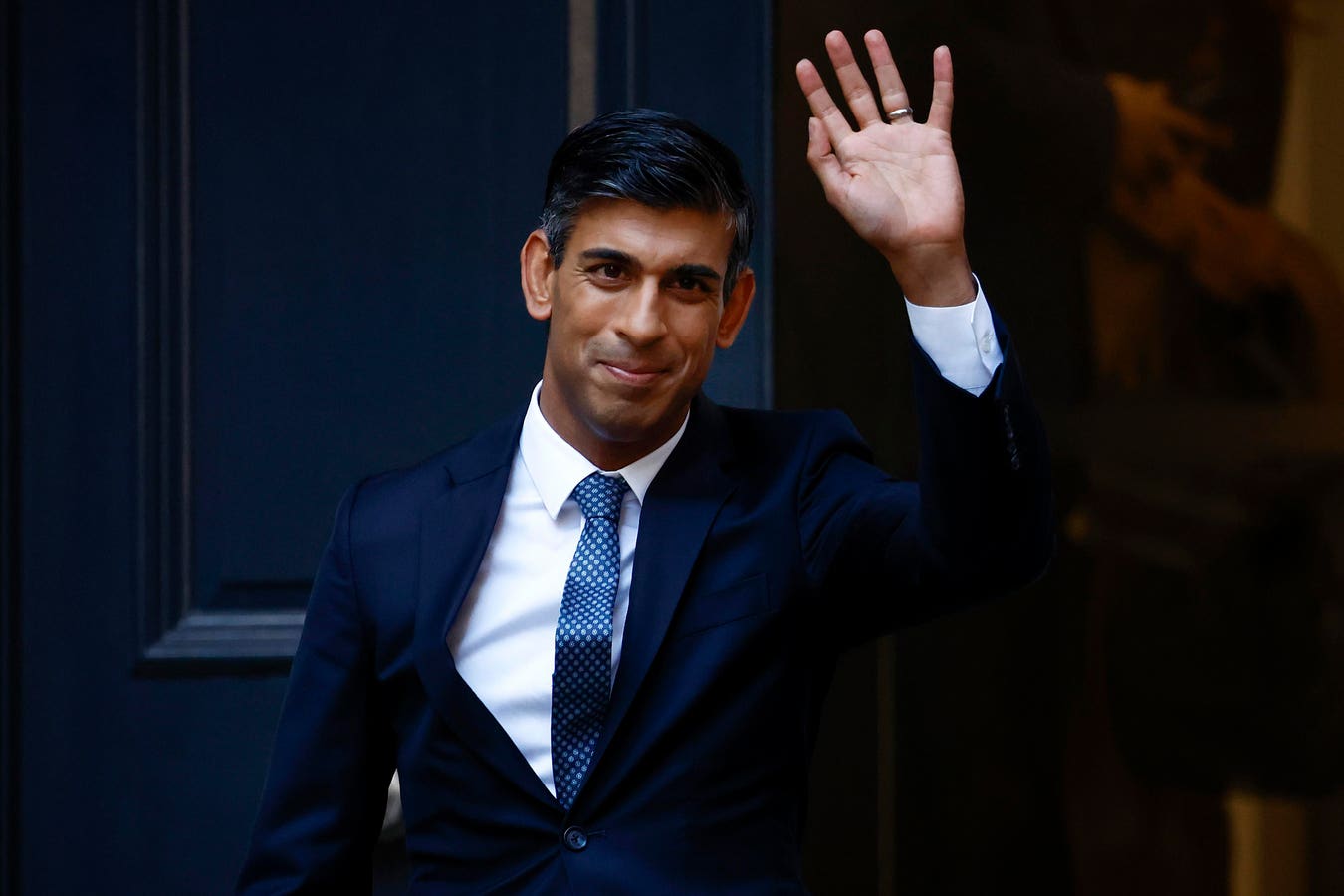London, UK – October 24: Rishi Sunak, the new leader of the Conservative Party and future Chancellor,… [+] They wave as they depart Conservative Party headquarters in London, England on October 24, 2022. (Photo by Jeff J. Mitchell/Getty Images)
Getty Images
Several UK charities representing the interests of disabled people have accused the proposed disability reforms of scapegoating the disabled community for political pretenses.
The reforms concern Personal Independence Payment, a flagship Conservative policy for over a decade, replacing the long-standing Disability Living Allowance system. PIP is a non-means-tested benefit available to both working and non-working people, calculated according to an individual’s needs resulting from a disability. It is intended to provide financial support for a range of additional living expenses arising from a disability or long-term health condition. This includes, but is not limited to, additional medical and hygiene supplies, barriers to accessing public transport, housing adaptations, and special assistive technology and equipment.
Yesterday, the government published a Green Paper on “modernising support” and will hold a 12-week consultation on its latest proposals. At the heart of this, and what concerns disability advocates most, are plans to restrict access to PIP for people suffering from mental illnesses such as depression and anxiety, and replace cash benefits with cashable vouchers and one-off grants.
The government says the number of PIP applications made on the grounds of mental illness has soared over the past few years, jumping from an average of 2,200 per month in 2019 to an average of 5,300 per month last year. This of course comes at a time when a global pandemic has defined an era that has exacerbated job insecurity and social isolation, followed shortly after by a cost of living crisis.
Despite the above, the government has stated that based on current projections, spending on PIP will increase by 52% to £32.8bn by 2027/28.
Announcing the Government’s latest proposals, Chancellor Rishi Sunak said:
“It’s clear that our disability benefits system is not working as intended and we are determined to reform it to make it sustainable into the future so that we can continue to provide support to those who truly need it most.”
“Today’s Green Paper marks the next chapter in our welfare reform and is part of our plans to make the benefit system fairer for taxpayers, better responsive to individuals’ needs and harder for those who would abuse the system.”
Political Football
The Conservative plans have been greeted with considerable concern by disability charities across the country.
James Taylor, executive director of the general disability charity Scope, was one of the first to express dismay when its Price of Disability 2023 report found that households with at least one disabled adult or child face an estimated average extra cost of £975 a month to achieve the same standard of living as non-disabled households.
“The cost of living for disabled people, including those with mental illness, is far higher. Threatening to take away the low amount of income PIP provides will not solve the country’s problems,” Mr Taylor said.
“The government needs to stop this reckless attack on people with disabilities and focus on how to solve the underlying problems,” he added.
Spokesperson for the Joseph Rowntree Foundation for a Poverty-Free Future I said it with X“Nearly two-thirds of people living in poverty have a chronic health condition or disability. These people should not be used as political pawns. We need action, not politicians’ rhetoric.”
This is a view emphasised by Disability Rights UK. lamented“We continue to be blamed for all the economic failures of the government. Enough is enough. This is just cruel.”
Meanwhile, a Liberal Democrat spokesman went straight to the heart of the matter, describing the Conservatives’ proposed PIP reforms as “yet another desperate pre-election ploy”.
General elections are expected to be held in the country in January 2025, shortly after the US presidential election.
Opinion polls have widely predicted that Keir Starmer’s Labour party will win a majority in Parliament, but doubts remain over whether there will be enough time to formally approve the PIP scheme, given that the Conservatives have only just entered the consultation stage.
While it would be unreasonable to expect the administration to put its legislative agenda on hold due to the potential damage it could cause in the upcoming elections, some skeptics would say that the latest PIP reforms are merely a statement of intent rather than something that will translate into concrete legislation. Perhaps the government is persuading voters that it is on the side of “hardworking people” and the best guardian of tax revenues from the undeserving poor.
Political maneuvering and posturing are perfectly natural in an election year, but it is when the most vulnerable in society are being judged in the Westminster meat grinder that the spotlight of scrutiny should be strongest.

